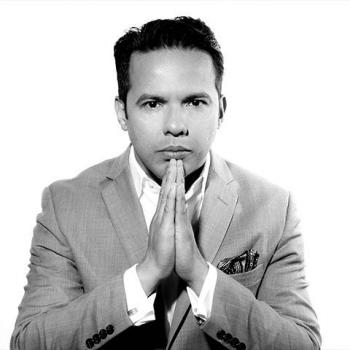By Jim Daly, Russell D. Moore and Samuel Rodriguez
We’ve all heard it, since we were schoolkids knocking about on the playground: “Sticks and stones will break my bones, but names will never hurt me.” A saying with good intent, to be sure, designed to steel young minds, and hearts, against the inevitable bruises that come with sharing childhood and adolescence with other children and adolescents.
But did any of us ever believe it was true? Even today – now that we’re older, hopefully wiser, having experienced the heartaches of everyday life more fully than we may have as kids – is it a statement we can stand behind?
We don’t think so.
Just about every day, a quick scan of the news headlines or a couple of keystrokes for a Google search serve up stories proving this old adage false. The evidence can come from picket signs, talk-show sound bites or something as short and simple as a 140-character tweet.
Clashes in Arizona over immigration policy. Public arguments over homosexuality in California. Christians and atheists lobbing verbal firebombs at each other in Washington, D.C. Sometimes, those at the center of the name-calling are famous. Most of the time, they aren’t. Well-known or not, their actions prove a singular truth: Names do hurt – and not just those on the receiving end of them.
To borrow the point of another, more accurate old aphorism: What we say about others reveals more about ourselves than the people we’re talking about. This is especially true for Christians, who encounter any number of verses in the Bible that point to how “sweetness of speech increases persuasiveness,” as the English Standard Version translation of Proverbs 16:21 puts it.
Jesus, as tended to be his way, was a bit more direct: “But I tell you that men will have to give account on the day of judgment for every careless word they have spoken,” he said in Matthew 12:36, adding: “For by your words you will be acquitted, and by your words you will be condemned.”
So, no, it is not news to any of us that we live in an electro-charged public square.
But it should be convicting to all Christians when we find ourselves contributing to this maelstrom. Derogatory terms for other human beings – regardless of how widely their views differ from ours or, more importantly, from the truths of Scripture – should never pass our lips. To call it rhetorical pornography, for the debasement it engenders, is not an overstatement.
To get into the terms specifically here would be to attach to them a dignity they don’t deserve. But we know them when we hear them: Epithets and cutting adjectives directed at gays and lesbians that go far beyond reasoned articulation of our biblical views about God’s design for human sexuality.
Cruel, dismissive descriptions of those who do not share our faith – whether they be of a different religion or none at all – serving to drive people further from the heart of Christ, the exact opposite of our calling as his modern-day disciples.
And, perhaps most distressingly, ethnic slurs against non-citizens in our country, people who, in many cases, are families just like our own, seeking the best quality of life they can achieve. How do those hurtful words address the deeper and quite nuanced issues of legality and border integrity?
What each of these instances has in common is that the words are being used to deny the innate humanity and dignity owed every individual. The Jesus we follow did not just die for those who believe in him; his father created each one of us in his own image.
That means that as Christ breathed his last on the cross, there was as much love in his heart for the homosexual activist, the Mexican national who is not a citizen and the atheist as there was for us.
It is out of the “overflow of the heart,” Jesus says in Matthew 12, that “the mouth speaks.” That means it is far more than a failure of “tone” when we marginalize or malign those with whom we disagree. The solution is not just “nicer” words, but a transformed perspective, one that sees all human beings, including “opponents,” through the eyes of our proponent, Jesus.
Jim Daly is president of Focus on the Family, Dr. Russell Moore is dean of the School of Theology at the Southern Baptist Theological Seminary, and the Rev. Samuel Rodriguez is president of the National Hispanic Christian Leadership Conference.











